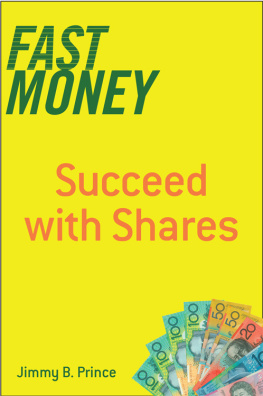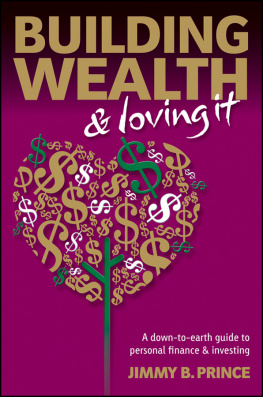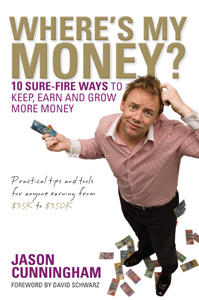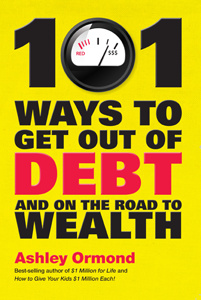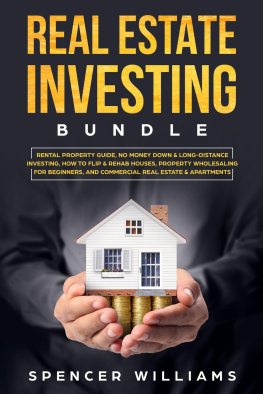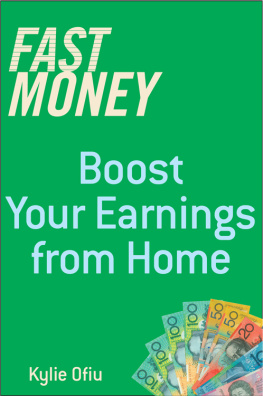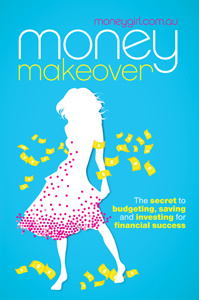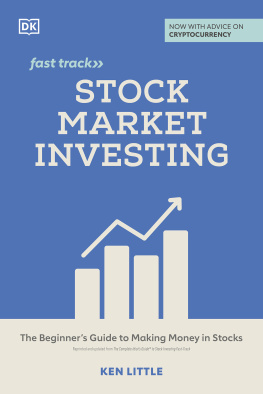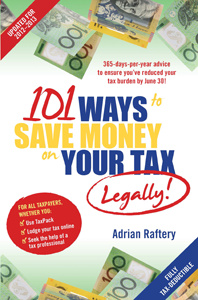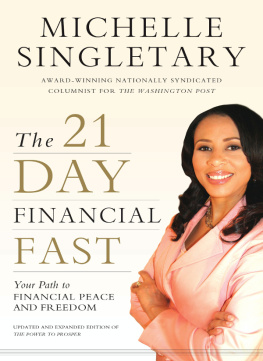Jimmy B. Prince - Fast Money: Succeed with Shares
Here you can read online Jimmy B. Prince - Fast Money: Succeed with Shares full text of the book (entire story) in english for free. Download pdf and epub, get meaning, cover and reviews about this ebook. year: 2013, publisher: Wiley, genre: Business. Description of the work, (preface) as well as reviews are available. Best literature library LitArk.com created for fans of good reading and offers a wide selection of genres:
Romance novel
Science fiction
Adventure
Detective
Science
History
Home and family
Prose
Art
Politics
Computer
Non-fiction
Religion
Business
Children
Humor
Choose a favorite category and find really read worthwhile books. Enjoy immersion in the world of imagination, feel the emotions of the characters or learn something new for yourself, make an fascinating discovery.
- Book:Fast Money: Succeed with Shares
- Author:
- Publisher:Wiley
- Genre:
- Year:2013
- Rating:3 / 5
- Favourites:Add to favourites
- Your mark:
- 60
- 1
- 2
- 3
- 4
- 5
Fast Money: Succeed with Shares: summary, description and annotation
We offer to read an annotation, description, summary or preface (depends on what the author of the book "Fast Money: Succeed with Shares" wrote himself). If you haven't found the necessary information about the book — write in the comments, we will try to find it.
Do your finances control you? Frustrate you? Limit you? Well take control of your money today and get more of what you want from life.
Bestselling author, Jimmy B. Prince guides you through the ins and out of investing in and profiting from shares. Fast Money: Succeed with Shares is a jargon-free, practical guide that will get you confidently investing in the share market and on the road to financial freedom, fast!
Fast Money: Succeed with Shares — read online for free the complete book (whole text) full work
Below is the text of the book, divided by pages. System saving the place of the last page read, allows you to conveniently read the book "Fast Money: Succeed with Shares" online for free, without having to search again every time where you left off. Put a bookmark, and you can go to the page where you finished reading at any time.
Font size:
Interval:
Bookmark:

First published in 2013 John Wiley & Sons Australia Ltd
42 McDougall Street, Milton Qld 4064
Office also in Melbourne
The moral rights of the author have been asserted
Fast Money: Succeed with Shares Jimmy B. Prince 2013
Excerpts taken from Building Wealth and Loving It, first published 2010 by Wrightbooks, an imprint of John Wiley & Sons Australia, Ltd
National Library of Australia Cataloguing-in-Publication entry:
Author: Prince, Jimmy B.
Title: Succeed with shares [electronic resource] / Jimmy B. Prince.
ISBN: 9781118613016 (ebook)
9781118613023 (ebook: Kindle)
Series: Fast money.
Subjects: StocksAustralia.
InvestmentsAustralia.
Finance, PersonalAustralia.
Dewey Number: 332.60994
All rights reserved. Except as permitted under the Australian Copyright Act 1968 (for example, a fair dealing for the purposes of study, research, criticism or review), no part of this book may be reproduced, stored in a retrieval system, communicated or transmitted in any form or by any means without prior written permission. All inquiries should be made to the publisher at the address above.
Disclaimer: The material in this publication is of the nature of general comment only, and does not represent professional advice. It is not intended to provide specific guidance for particular circumstances and it should not be relied on as the basis for any decision to take action or not take action on any matter which it covers. Readers should obtain professional advice where appropriate, before making any such decision. To the maximum extent permitted by law, the author and publisher disclaim all responsibility and liability to any person, arising directly or indirectly from any person taking or not taking action based on the information in this publication.
About the author
Jim Prince is a fellow of CPA Australia and a tax specialist. He is a former lecturer and tutor in income tax law at La Trobe Uni- versity, and teaches a number of wealth creation courses for the CAE in Melbourne. He has authored several investment books including Tax for Australians For Dummies and has written articles for Your Mortgage magazine and . In 2000 Jim was nominated for an Adult Learners Week 2000 outstanding tutor award.
In his earlier years Jim worked for the Australian Taxation Office and also consulted to CPA Australia Technicall.
Chapter 1: Making money on the sharemarket
As share prices can fluctuate daily the anxiety that you could lose money is a constant feeling you may experience. Sure you can drop a bundle if share prices plunge. But you can also make heaps if they rise. Provided you do your homework and invest sensibly, owning shares can be a very rewarding and lucrative way of building up your wealth. In this chapter I chat about the basics, and explain that investing in the sharemarket is not all doom and gloom. I also chat about the different ways you can invest in shares.
To gain confidence dealing with this type of wealth-creating asset, its important that you understand the fundamentals both good and bad. The following information explains the nuts and bolts of investing in the sharemarket.
Cashing in your chips: highly liquid
During one of my sharemarket courses a woman casually said to me, I own a $50 000 share portfolio but I have no cash that I can quickly access. When the first aid officer helped me recover from the sudden shock of hearing such a statement, I had to remind her that shares are effectively a substitute for cash. In chapter 2 I emphasise it normally takes no more than a few seconds to buy and sell them (especially if its done online). And youll normally get your money back within a few days. Alternative investments like managed investment schemes, real estate and collectables could take an eternity to sell. So what does all this mean? Shares allow you to quickly get in and out at minimal cost. And youll be able to take advantage of any good buying opportunities in other asset classes that may pop up from time to time.
Shares also give you the opportunity to sell small parcels at short notice. For example, you own 1000 BHP Billiton shares and you need to sell 500 shares to access some cash quickly. Unfortunately, you cant do this with alternative investments such as real estate and collectables: you cant rock up to an auctioneer and try to sell your front bedroom or the left-hand corner of an expensive painting by a famous artist! Although there is no minimum number of shares you can sell, the brokerages fees payable to sell minute parcels could make the transaction uneconomical.
Adding to the pile: investing small amounts
One of the great things about shares is you dont need a truckload of money to start the ball rolling (as is the case with wealth creation assets like real estate). There are simply no set minimums. With as little as $1000 you can start a small share portfolio and build from there. And you can buy more shares as you become more affluent. Further, when you become a shareholder, you may be given the opportunity to participate in rights issues and dividend reinvestment plans, where you can buy more shares direct from the company. These offers to buy additional shares are normally at a discount to the current market price, and no brokerage fees are payable! A great example that comes to mind is the National Australia Bank share purchase plan. In August 2009 shareholders were given the opportunity to buy shares direct from the company at $21.50 per share. When the shares were allotted to the shareholders a few weeks later, they were trading at around the $28 mark (you little ripper!).
Counting your money: prices published daily
I love counting my money, especially when share prices are rising. The great thing about owning shares is you can instantly check their current market value, while sitting in front of your laptop sipping a cool drink at a popular holiday resort. If they go up in value you can quickly sell them and take a profit, and either buy them back again if they fall in value or move into something else. For example, on Monday you pay $30 for 1000 shares. On Tuesday at 10.05 am they jump to $31.25. You immediately sell them and pocket a lazy $1250 profit (less brokerage; building wealth and loving it!). At 2.45 pm they fall back to $30. So you decide to buy the shares back. Unfortunately, you cant do this with alternative wealth-creating assets like real estate. Although you can get a sworn valuation its meaningless unless you can find a buyer whos willing to pay the price youre asking.
Rolling in dough: receiving a dividend
The major Australian companies listed on the ASX normally declare two dividends around the same time each year. They are called an interim (or mid-year) dividend and a final dividend. If you have a number of companies that declare dividends on different dates, its possible to get a steady and reliable income flow. For example, CBA normally pays dividends in March and October while NAB pays dividends in July and December. If you also have Telstra in your portfolio, which normally pays dividends in April and September, youre on the way to getting a nice little income flow going.
Its also possible for you to qualify for a dividend within a few days of buying your shares. When a company declares a dividend it will announce the ex-dividend date. This means if you buy the shares before the ex-dividend date you will qualify for the dividend. For example on 1 February the company declares 50 cents per share dividend and announces the ex-dividend date is 14 February. If you buy the shares before 14 February youll qualify for the 50 cents per share dividend when theyre paid. If you do this youll be buying the shares cum-dividend (meaning with the dividend attached). But the good news gets even better: if you sell them after they go ex-dividend (for instance on 16 February), youll still get the dividend even though you no longer own the shares! The person who buys them from you misses out. Contrast this with a term deposit where you may need to wait six months before interest is credited to your account. Unfortunately, when a company goes ex-dividend you may find the share price falls. This is because the company has now got an obligation to pay a dividend. So you may need to take this into account if you plan to sell your shares in the short term. Besides getting a dividend, youll also receive a franking credit if the dividend is franked. In chapter 3 I point out that franking credits are tax offsets that you can apply against the net tax payable on the dividend (and other income) you derive.
Font size:
Interval:
Bookmark:
Similar books «Fast Money: Succeed with Shares»
Look at similar books to Fast Money: Succeed with Shares. We have selected literature similar in name and meaning in the hope of providing readers with more options to find new, interesting, not yet read works.
Discussion, reviews of the book Fast Money: Succeed with Shares and just readers' own opinions. Leave your comments, write what you think about the work, its meaning or the main characters. Specify what exactly you liked and what you didn't like, and why you think so.

